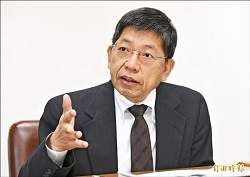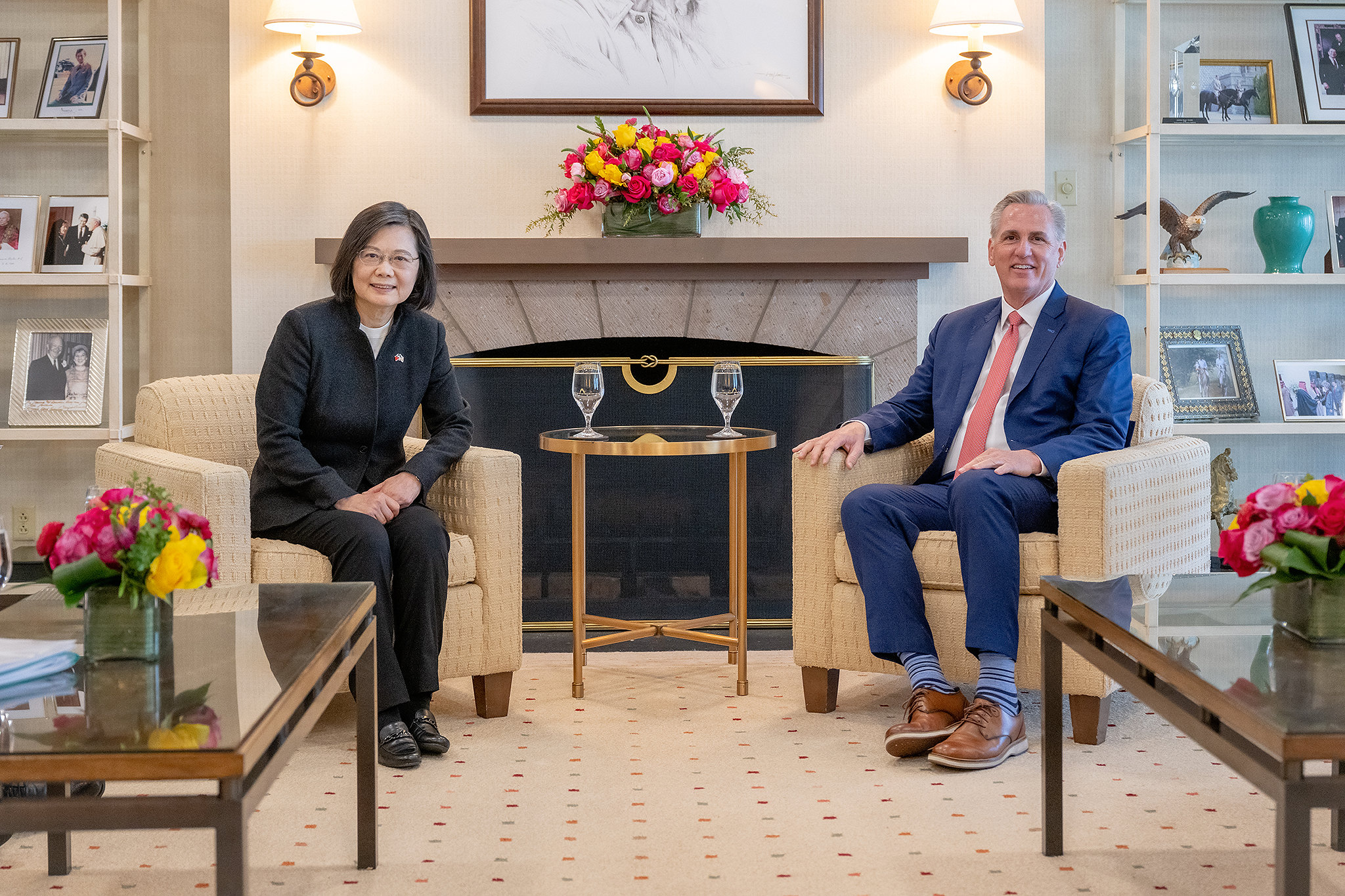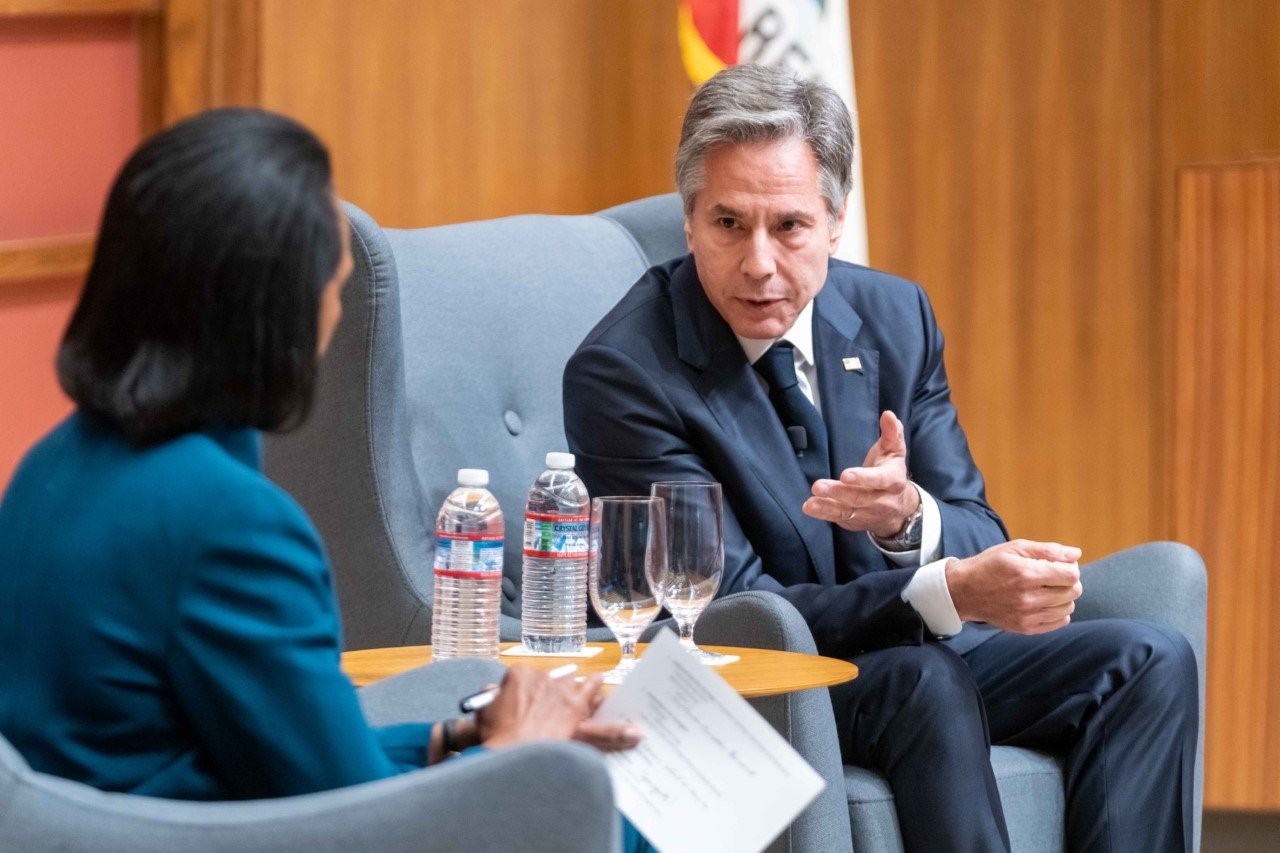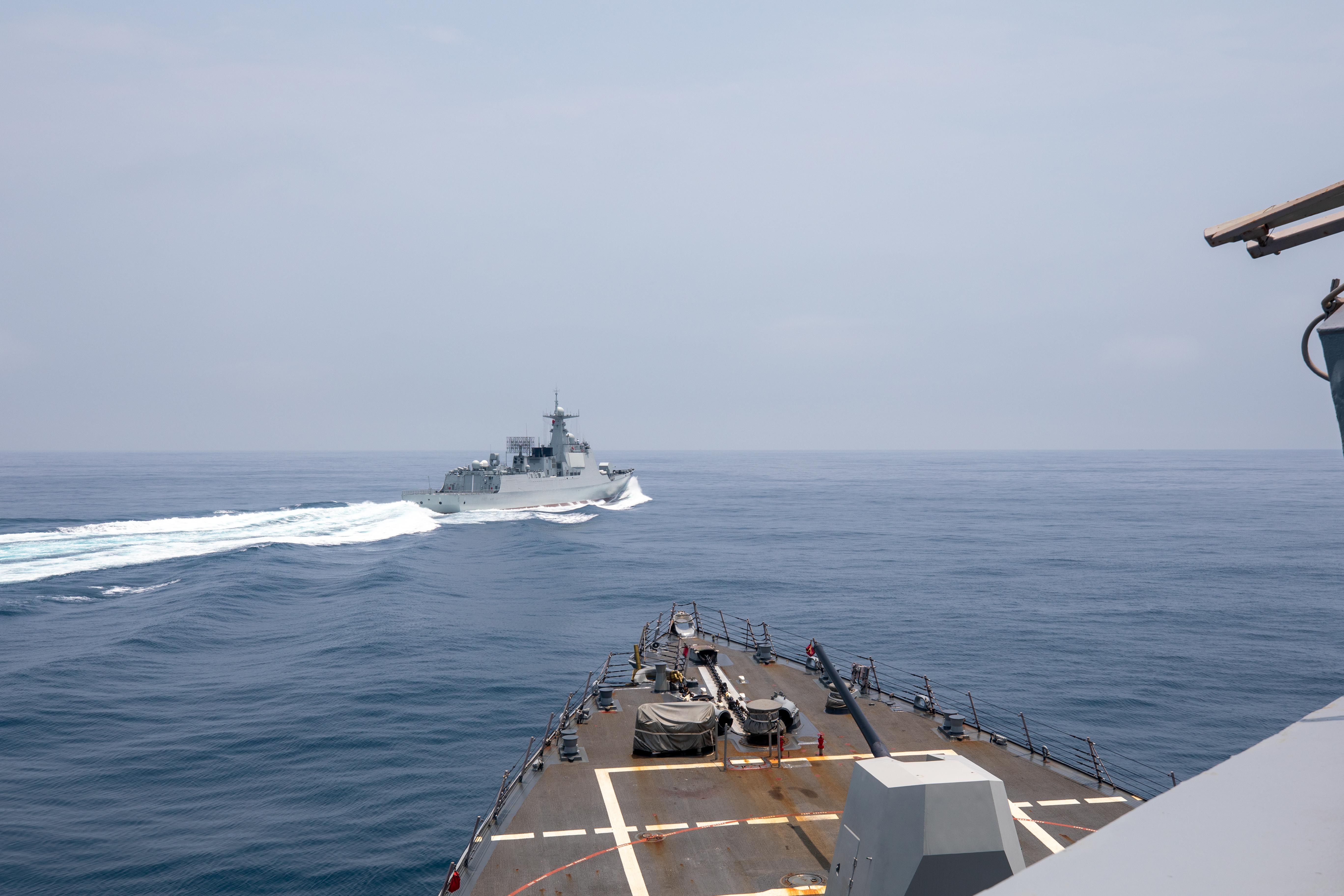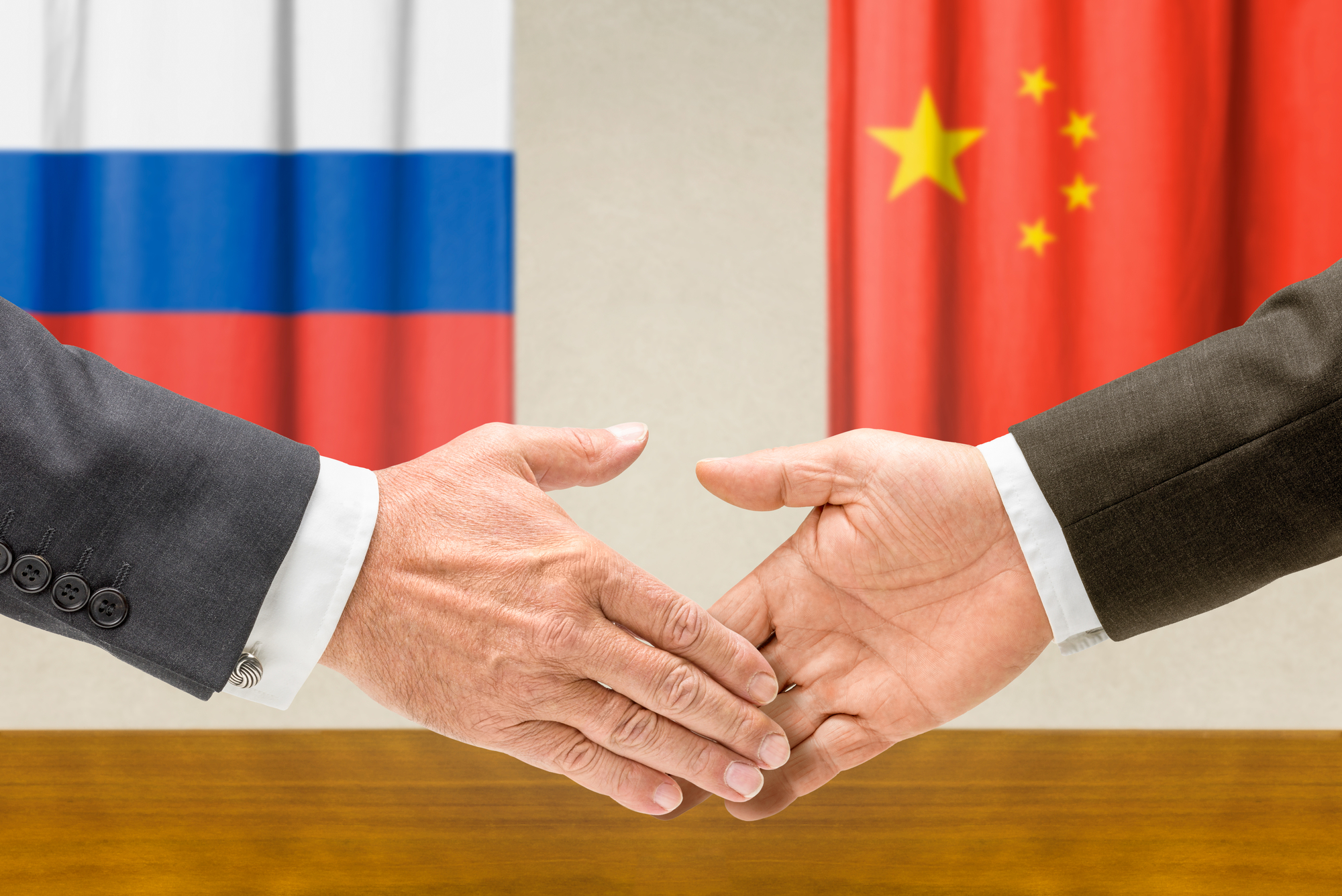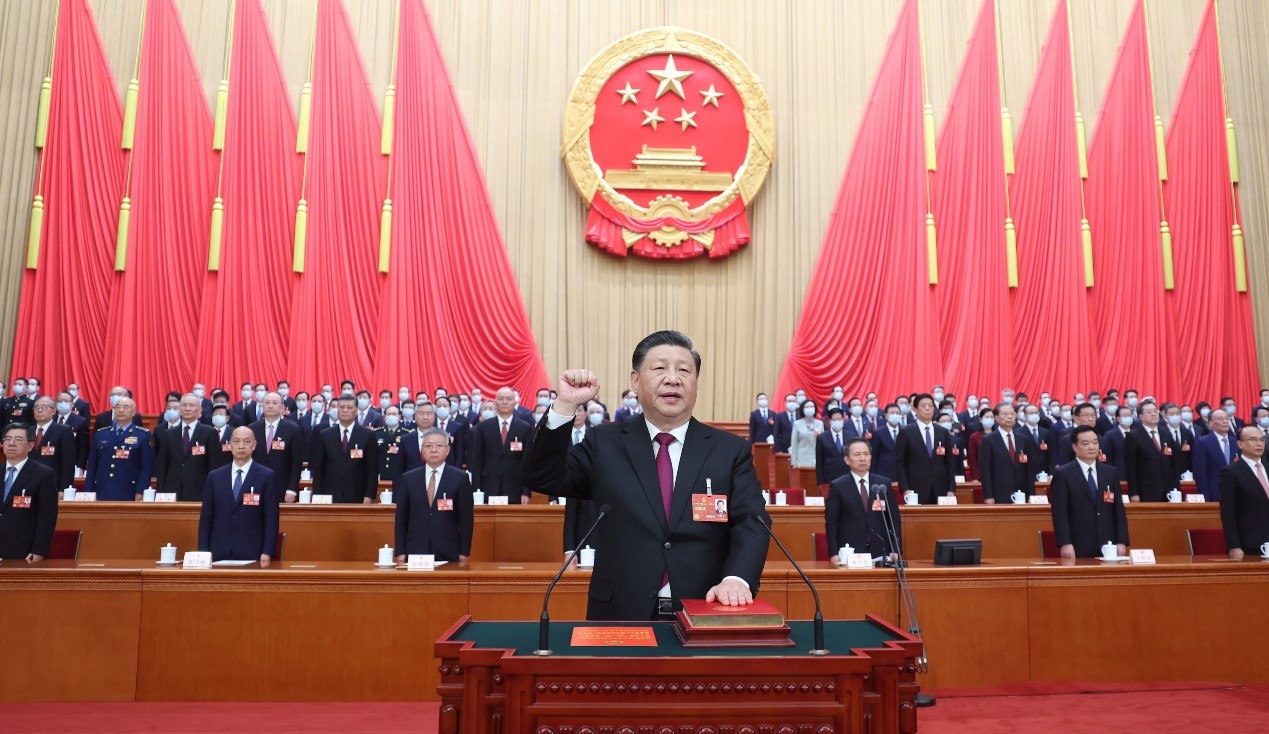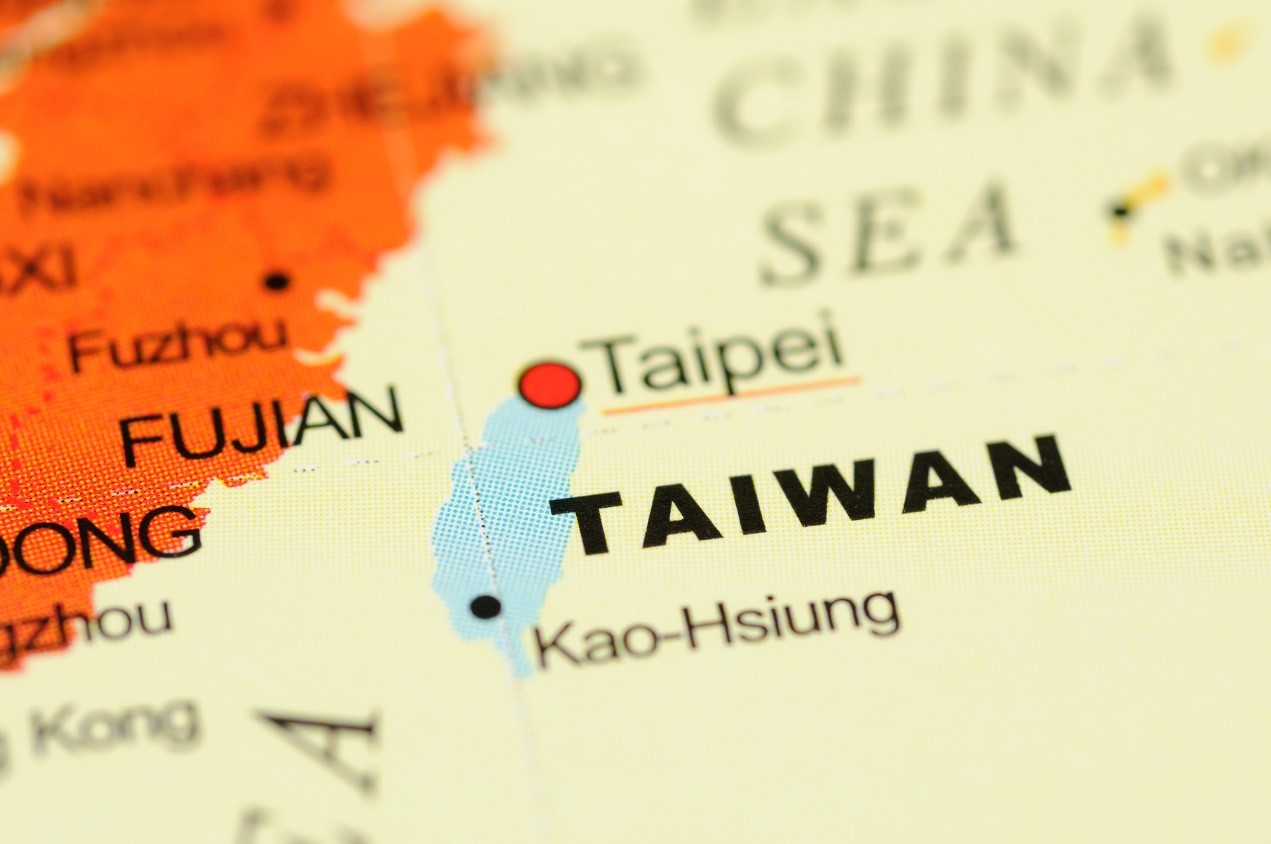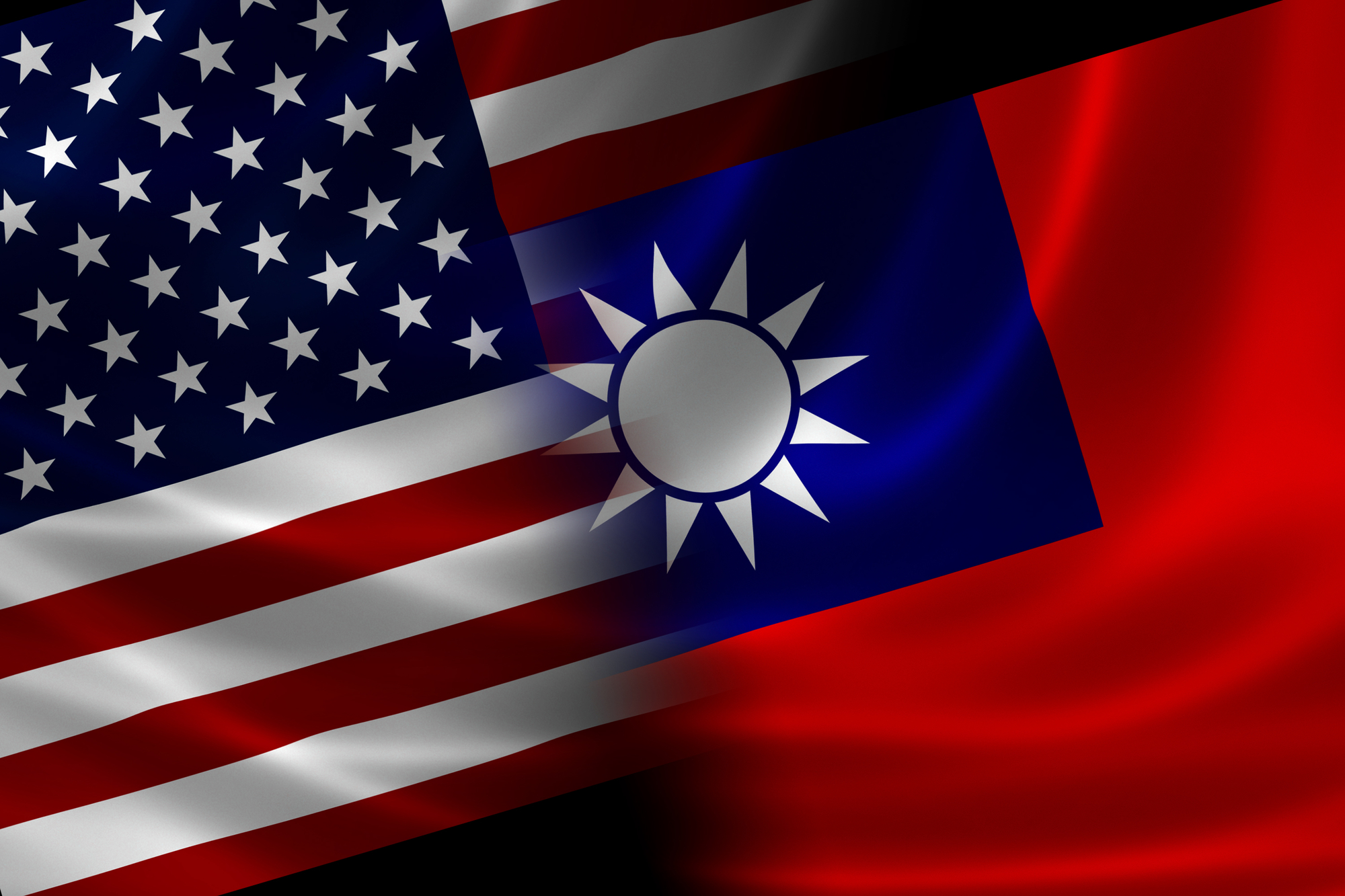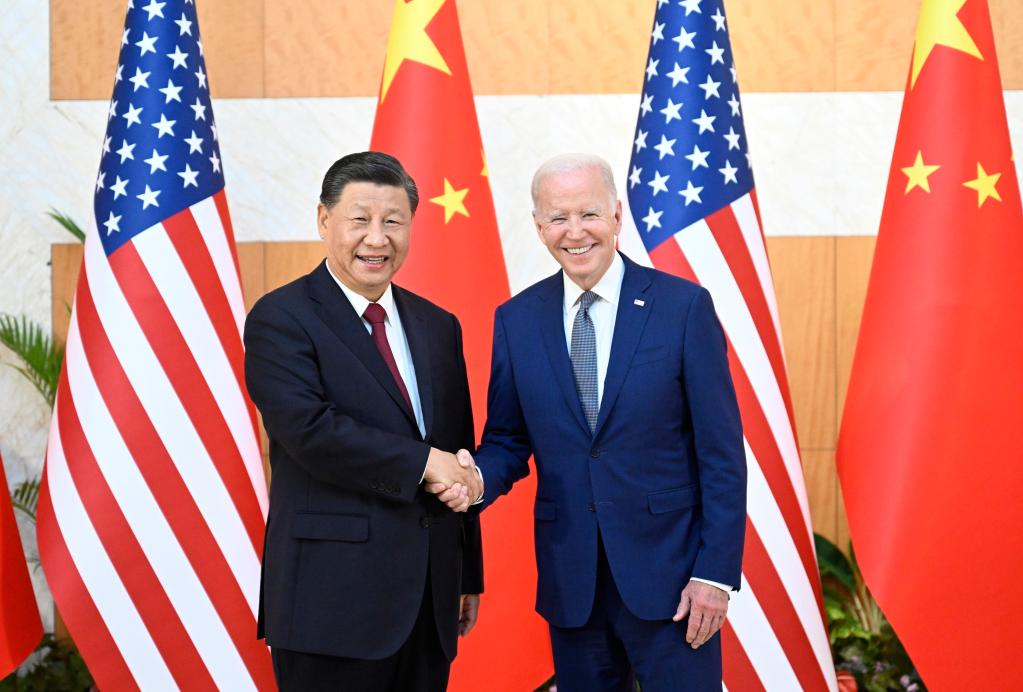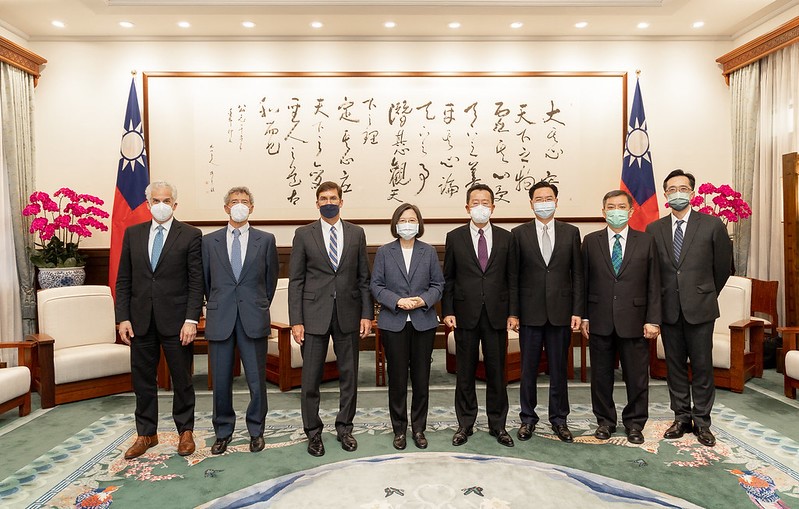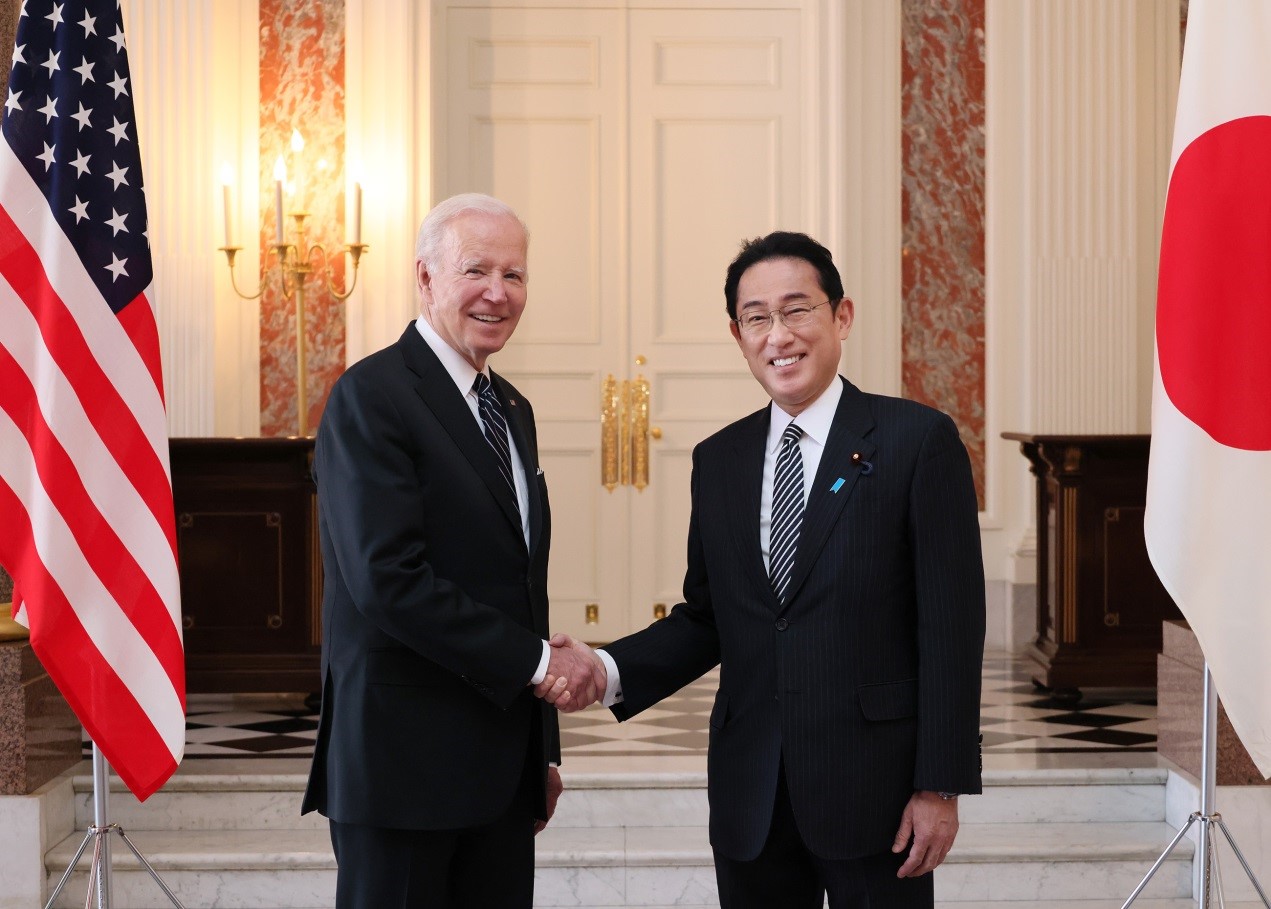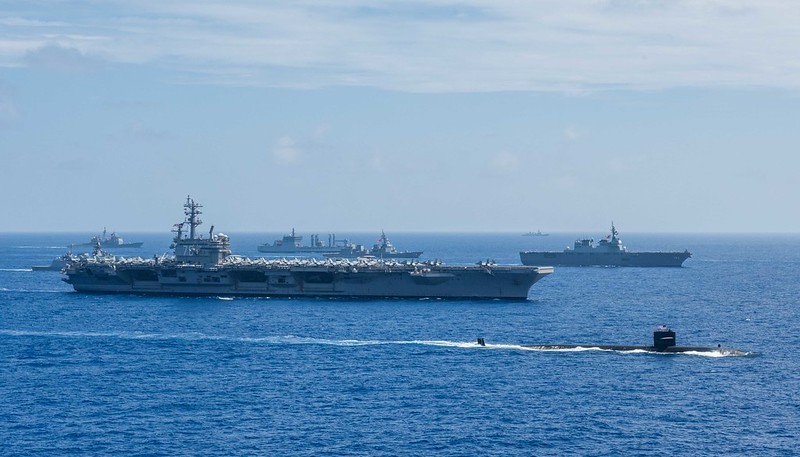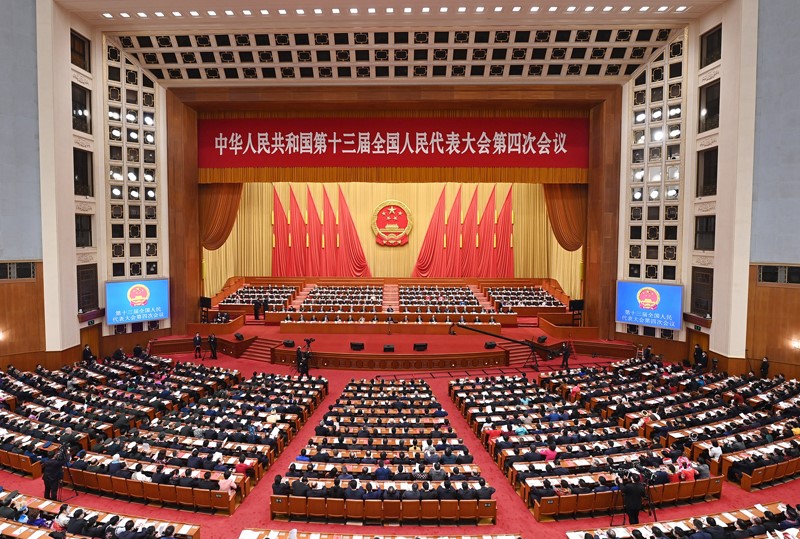President Tsai’s meeting with both the U.S. House Speaker and minority leader underscored their support for the people of Taiwan. These courtesies are also the result of Beijing’s sustained oppression of Taiwan.
Picture source: Office of the President (Taiwan), April 6, 2023, Flickr, https://www.flickr.com/photos/presidentialoffice/52795941472/.
Beijing’s Overreaction to President Tsai’s Transit in the U.S.
Prospects & Perspectives No. 20
By Cheng-yi Lin
Although former U.S. president Donald Trump signed the Taiwan Travel Act before finalizing trade negotiations with China, he did not sell F-16V combat aircraft to Taiwan until August 2019 or send a cabinet member to visit Taiwan until 2020. Trump’s relationship with Xi Jinping deteriorated due to the COVID-19 pandemic, and Chinese fighter jets increased the frequency with which they entered Taiwan’s Air Defense Identification Zone. As a result, the relationship between the United States and Taiwan began to improve significantly.
As China becomes more threatening, Taiwan enjoys more and more goodwill from the American people. According to a Pew Research Center poll in March 2023, 66% of Americans have a favorable view of Taiwan, and the proportion of Americans who are worried about a cross-Strait conflict has also increased from 43% in October 2022 to 47% in March 2023. A Wall Street Journal editorial on April 5 stated that the growing bipartisan support for Taiwan in the United States can only be blamed on China.
The Senate and the House of Representatives have stated their opposition to Xi Jinping’s assertive actions, and passed Taiwan-friendly bills such as the Taiwan Allies International Protection Enhancement Initiative Act in 2020, which was later signed by Trump. The team, led by then-Secretary of State Mike Pompeo and the National Security Council, intensified and accelerated the improvement of relations with Taiwan after the legislation became public law, which also caused the greatest challenge to the U.S.-China relationship since the establishment of diplomatic relations between the two countries.
During her transit in New York from March 30 to 31, President Tsai Ing-wen met with American friends such as Hakeem Jeffries, the Democratic leader of the House of Representatives, a clear display of the respect that Democratic lawmakers have for President Tsai. President Tsai promised that Taiwan will play a role in maintaining regional peace, be a reliable economic and trade partner, and seek steadfast diplomacy while maintaining stability across the Taiwan Strait. While in New York, Tsai also met with Senators Dan Sullivan (Republican, Alaska), Joni Ernst (Republican, Iowa), and Mark Kelly (Democrat, Arizona). On her way back from Belize, Tsai made a stopover Los Angeles and visited the Regan Library on April 5. The unprecedented reception from U.S. House Speaker Kevin McCarthy (Republican, California) and 18 other members of congress was an opportunity to address issues of mutual concern, from the security of Taiwan to the positive role of Taiwan in the Indo-Pacific. Tsai’s meeting with both the U.S. House Speaker and minority leader underscored their support for the people of Taiwan. These courtesies are also the result of Beijing’s sustained oppression of Taiwan.
In the past, China’s retaliation against Tsai’s overseas visits and transits in the United States was mostly focused in the diplomatic field. For example, in April 2018, President Tsai visited the Kingdom of Swaziland, following which China established diplomatic relations with the Dominican Republic and Burkina Faso in May. President Tsai visited Paraguay and Belize in August 2018, and soon afterwards China poached El Salvador. In March 2023, before Tsai’s state visits to Guatemala and Belize, China poached Honduras, a diplomatic ally for 82 years. However, Beijing has broken with its past responses and overreacted to Tsai’s transit in the U.S.
U.S. National Security Adviser Jake Sullivan had a phone call with Wang Yi, Director of the Office of the Central Foreign Affairs Commission of China, on March 24. During this call, Sullivan is said to have informed Xi of President Tsai’s transit in the U.S. and made arrangements for a phone call between Xi and President Biden, among other issues. On April 5, U.S. Secretary of State Antony Blinken said in Europe that it was not the first time that high-level officials from Taiwan had transited in the United States, adding that those were private and unofficial. Beijing should not use the transit as an excuse to take any action to escalate tensions and further change the status quo, Blinken added.
China’s overreaction to Tsai’s latest transit in the U.S. was more comprehensive, at the military and diplomatic level, and aimed at both Taiwan and the United States. China announced a live-fire military exercise on Pingtan Island in Fujian Province, and conducted naval and air exercises around Taiwan, with attempts to enter the 24 nautical mile contiguous zone of Taiwan. The Taiwan Affairs Office targeted Taiwan’s Representative to the United States, Hsiao Bi-khim, the Prospect Foundation, and the Council of Asian Liberals and Democrats (CALD) for sanctions. The Chinese Ministry of Foreign Affairs also announced sanctions against the Hudson Institute and the Ronald Reagan Presidential Library — both visited by President Tsai during her transit — and their leadership.
China also announced that the Ministry of Transport’s Maritime Safety Agency (MSA) cruise rescue ship Hai Xun 06 would lead a special patrol inspection operation in the central and northern parts of the Taiwan Strait. During this operation, the Chinese MSA was given the right to board and check navy vessels on direct cross-Strait navigations. This is another example of China’s gray-zone activities. China did not dispatch coast guard ships for enforcement activities in the Taiwan Strait. More noteworthy is the fact that China’s second aircraft carrier, the Shandong, made a quiet transit in the South China Sea during that period, on April 5 it passed through the Bashi Channel and headed to the eastern waters of Taiwan. Whether the Shandong will practice take-off and landing drills every six months as the Liaoning has done in the past two years remains to be seen.
China’s response to Tsai’s latest transit in the U.S. seems to be the result of the high-level meetings she held. However, it did not repeat the high-intensity, live-fire drills, including the bracketing of Taiwan with ballistic missiles, held in response to the U.S. House Speaker Nancy Pelosi’s visit to Taiwan in August 2022.
Whether China’s retaliation against U.S. transits by Taiwanese presidents is dependent on which political party is in power in Taipei, or even singles out President Tsai, is unknown, but certainly raises questions about double standards in Beijing and what its intentions may be. Would a president from the Kuomintang (KMT) transiting in the United States and receiving a reception similar to that received by Tsai result in similar retaliation by Beijing? Does Beijing regard cross-Strait relations or Sino-U.S. relations as more important? Or did the president of Taiwan censor herself first, telling the U.S. not to be too high-profile or too courteous? It is time for Beijing to reevaluate the effectiveness of its Taiwan policy and face the reality that Taiwan will not forever be ruled by the KMT or even the Democratic Progressive Party. A consistent Taiwan policy, instead of two sets of Taiwan policies, is something that Beijing should consider.
(Dr. Lin is Research Fellow, Institute of European and American Studies, Academia Sinica.)

